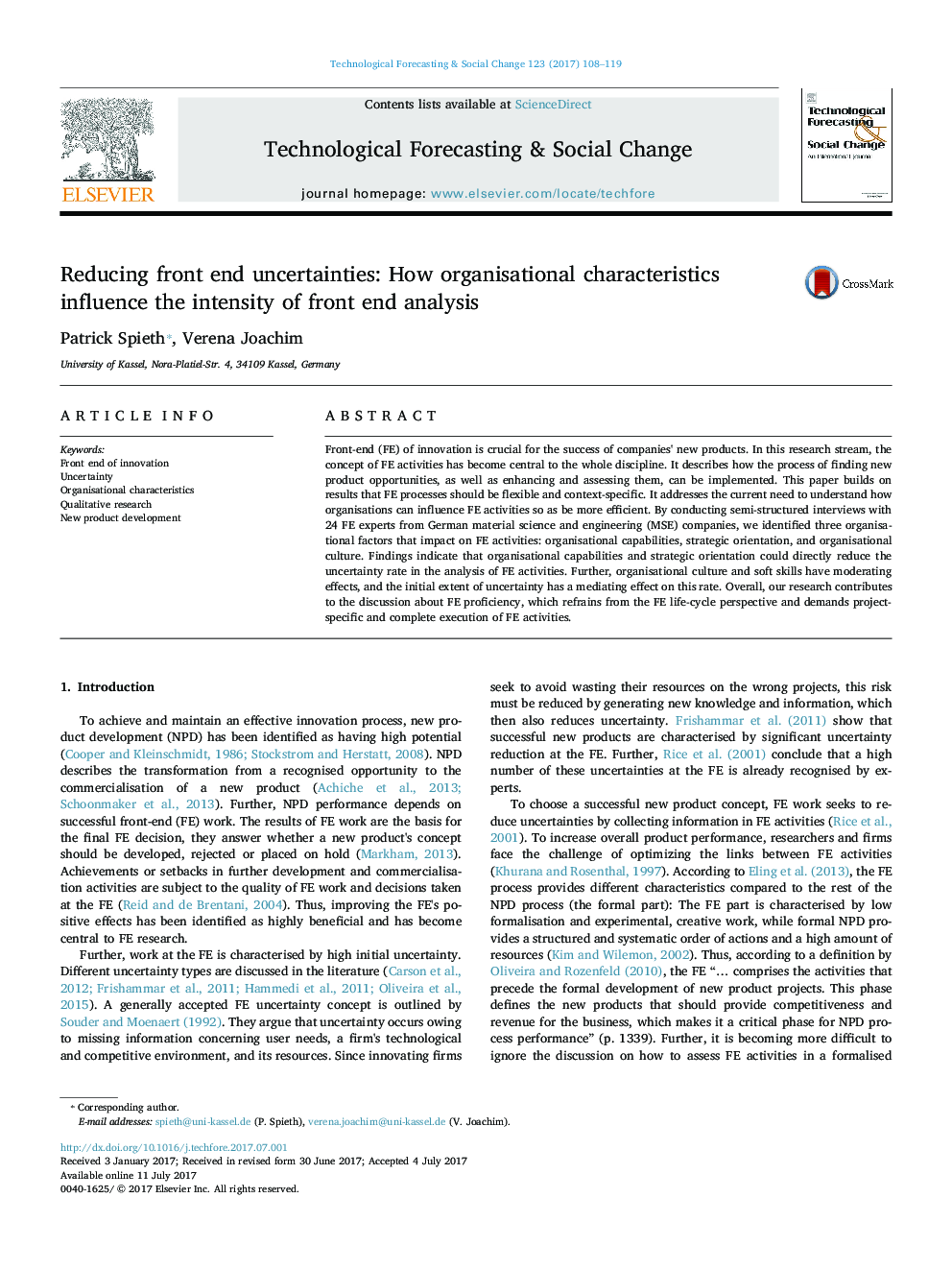| Article ID | Journal | Published Year | Pages | File Type |
|---|---|---|---|---|
| 5036804 | Technological Forecasting and Social Change | 2017 | 12 Pages |
â¢We show how organisations can influence front-end activities to be more efficient.â¢We identify three organisational factors that affect front-end activities.â¢Organisational capabilities and strategic orientation reduce uncertainty rate.â¢Organisational culture has moderating effects on this rate.â¢Initial extent of uncertainty has also a mediating effect on this rate.
Front-end (FE) of innovation is crucial for the success of companies' new products. In this research stream, the concept of FE activities has become central to the whole discipline. It describes how the process of finding new product opportunities, as well as enhancing and assessing them, can be implemented. This paper builds on results that FE processes should be flexible and context-specific. It addresses the current need to understand how organisations can influence FE activities so as be more efficient. By conducting semi-structured interviews with 24 FE experts from German material science and engineering (MSE) companies, we identified three organisational factors that impact on FE activities: organisational capabilities, strategic orientation, and organisational culture. Findings indicate that organisational capabilities and strategic orientation could directly reduce the uncertainty rate in the analysis of FE activities. Further, organisational culture and soft skills have moderating effects, and the initial extent of uncertainty has a mediating effect on this rate. Overall, our research contributes to the discussion about FE proficiency, which refrains from the FE life-cycle perspective and demands project-specific and complete execution of FE activities.
